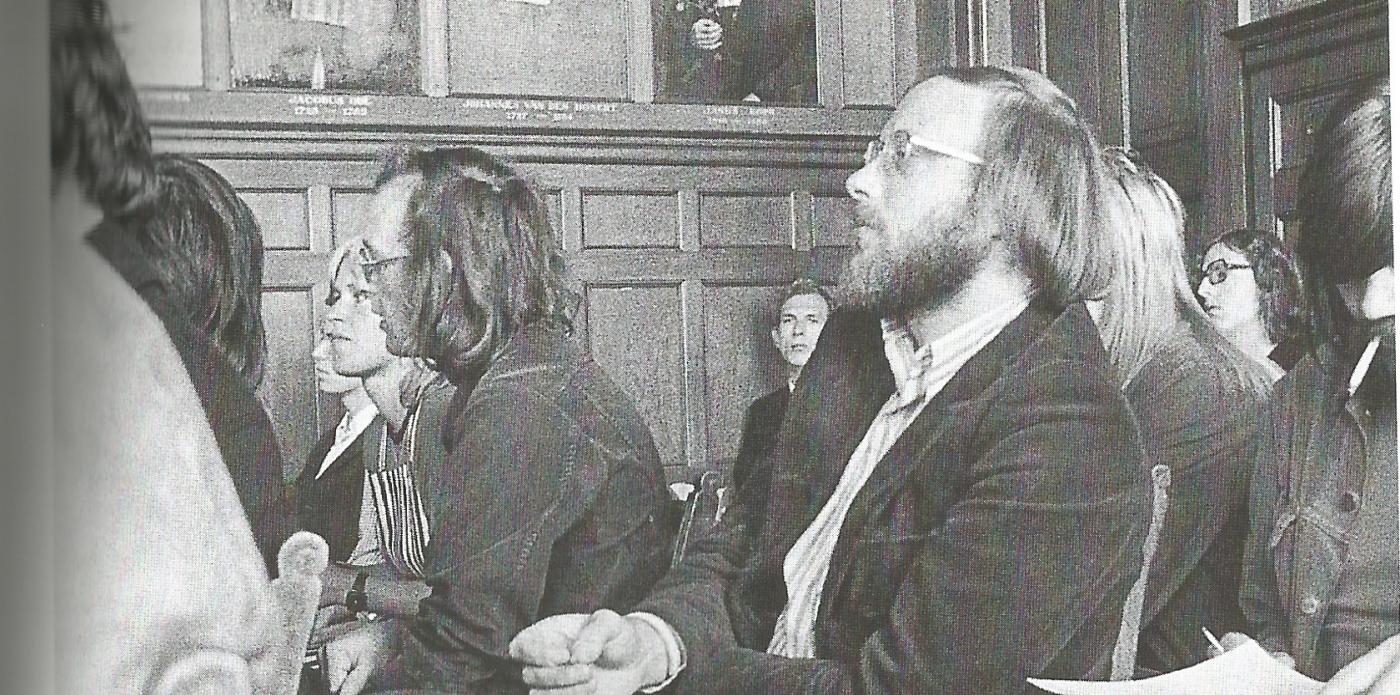Willem Kuipers (1940-2022)
Ublad's first editor-in-chief dies aged 82

Willem Kuipers was born and raised in Utrecht. He was working as an apprentice journalist at the Utrecht-based newspaper Het Centrum when he was conscripted by the army. He went back to Het Centrum after the war ended, eventually becoming the top editor of the city desk. In 1965, he started studying Dutch Language and Literature at Rijksuniversiteit Utrecht, where he delved into literary sciences and linguistics.
With such a CV, he qualified to be the first editor-in-chief of "U", later called UBlad, in 1972. The publication was the fusion of two others: Sol listutiae, aimed at students, and Solaire Reflexen, aimed at employees. It did have an editorial staff but no editor-in-chief. At the time, UU's Public Relations department was still responsible for the publication, which changed it name to UBlad in 1974.
More professional
Back in those days, the magazine was weekly and had a circulation of 22,000. Kuipers was committed to its professionalization, advocating for "competent folk instead of amateurish scribblers." He also wanted Ublad to be more stimulating, an opinion he exposed in his first article for the magazine, titles "Death to the car" (in Dutch only, Ed.)
Kuipers didn't have it easy. He had to face an Executive Board that was interested to turn the magazine in to an official communication channel, which precluded an entirely independent editorial staff. But they weren't the only ones who saw the magazine in this manner: the editorial board and the Univeristy Council did, too. They regarded it as an internal means of communication aimed to provide readers with in-depth information about the university and academia. The editorial staff had to watch out for unilateral op-eds.
National uproar
Kuipers advocated for more openness and transparency, arguing that the editorial staff should be given access to what happened behind the scenes. He was committed to writing articles that were easy-to-read, journalistically sound, and provocative. In the summer of 1974, UU's Executive Board decided not to give him a permanent contract, which caused an uproar that crossed the boundaries of the university. It became an affair of national interest. Kuipers was suspended due to his media appearances, which affected him greatly.
In the end, he was allowed to stay on a temporary contract until 1975. However, he resigned saying that doing so would be the only way to guarantee that UBlad would continue to exist. Thanks to his pioneer work, Kuipers cleared the way for the professionalisation of the magazine, as well as for the transfer of PR publications to a separate department. Between 1976 and 1999, UBlad was published as an independent organisation.
Book supplement Cicero
After his departure, Kuipers first worked as a scientific literature editor at the publisher Ambo. In 1980, he became the literary editor at the national newspaper De Volkskrant, after which he moved to the art section and then to the position of editor-in-chief of the literary supplement Cicero. Aside from his work at De Volkskrant, Kuipers wrote novels. Last but not least, he dedicated a lot of his time to refugees, chairing the journalist group within Amnesty International in the 1980s. He served as the president of the refugee organisation Aida from 1990 to 2008.